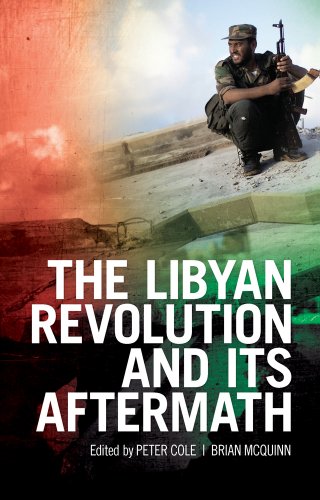
Sinossi
This book offers a novel, incisive and wide- ranging account of Libya's '17 February Revolution' by tracing how critical towns, communities and political groups helped to shape its course. Each community, whether geographical (e.g. Misrata, Zintan), tribal/communal (e.g. Beni Walid) or political (e.g. the Muslim Brotherhood) took its own path into the uprisings and subsequent conflict of 2011, according to their own histories and relationship to Muammar Qadhafi's regime. The story of each group is told by the authors, based on reportage and expert analysis, from the outbreak of protests in Benghazi in February 2011 through to the transitional period following the end of fighting in October 2011. They describe the emergence of Libya's new politics through the unique stories of those who made it happen, or those who fought against it. The Libyan Revolution and its Aftermath brings together leading journalists, academics, and specialists, each with extensive field experience amidst the constituencies they depict, drawing on interviews with fighters, politicians and civil society leaders who have contributed their own account of events to this volume.
Le informazioni nella sezione "Riassunto" possono far riferimento a edizioni diverse di questo titolo.
Recensione
'A timely acknowledgment that Libya's chemistry is older than the laboratory Qaddafi fashioned. The book traces not only the colonel's demise, as many others have done, but the appearance of a lesser-known new cast. Written almost entirely by foreign experts, some of whom know the different factions intimately, it is the most detailed account I have read of the old forces shaping new Libya.' --New York Review of Books
By explaining the mosaic of Libya s various sub-national loyalties and identities and their origins, The 'Libyan Revolution and its Aftermath provides a useful antidote to day-to-day media coverage, which sometimes reduces Libyan political disputes to a binary struggle between Islamists and secularists, or East and West, or to tribal differences. It underlines the difficulty of forging a new political and economic framework that recognizes these differences but channels them into a pluralistic and tolerant vision.' --Times Literary Supplement
'The most complete picture we have yet had of the Libyan revolution and its aftermath ... a compelling and troubling read.' --The National
L'autore
Peter Cole was a Senior Analyst on Libya with the International Crisis Group (ICG) during the revolution and the ensuing transitional government, providing policy advice and background briefings to the UN, EU, governments, companies, NGOs and most major media outlets. Prior to his work with ICG, Peter completed an MPhil in Modern Middle Eastern Studies at the University of Oxford. Brian McQuinn is a research associate at the Centre on Conflict, Development and Peacebuilding and a doctoral candidate at the University of Oxford.
Le informazioni nella sezione "Su questo libro" possono far riferimento a edizioni diverse di questo titolo.
Altre edizioni note dello stesso titolo
Risultati della ricerca per The Libyan Revolution and Its Aftermath
The Libyan Revolution and Its Aftermath
Da: Studibuch, Stuttgart, Germania
hardcover. Condizione: Gut. 320 Seiten; 9781849043090.3 Gewicht in Gramm: 1. Codice articolo 927021
Compra usato
Quantità: 1 disponibili

